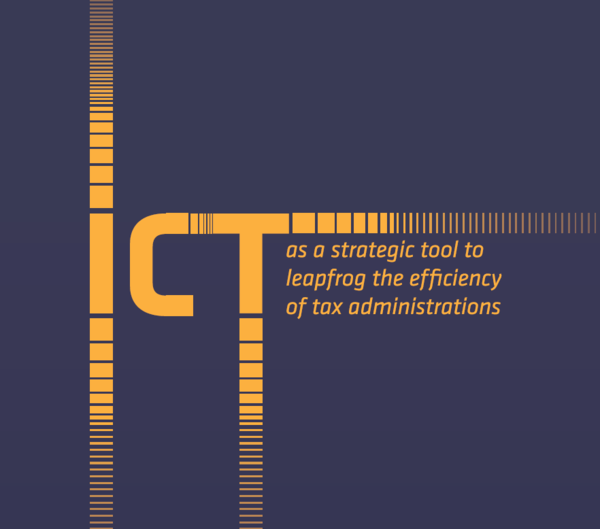
CIAT publication on ICT for Tax Administrations is available now
The NTO member Inter-American Center of Tax Administrations (CIAT) has just released a new e-book covering the use of information and communication technology (ICT) in tax administrations as a tool to foster efficiency.
In the framework of internal cooperation supported by the NTO, CIAT has initiated a series of bilateral webinars with other NTO members to exchange on ICT in tax administrations. The webinars cover the application of ICTs in the collection, recoveries and auditing processes and the application of ICTs in the processes of taxpayer registration and tax returns. Furthermore, the webinars serve to disseminate the findings of the publication and to share the gathered knowledge of the publication with officials from the members of the participating tax organisations. The first exchange between CIAT and the Association of Tax Authorities of Islamic Countries (ATAIC) took place on 30.09.2020 and was deemed very successful by both parties.
Among others, the book provides insights on the functions of tax administrations and taxpayers registry, the processing of tax returns, payments and refunds as well as the auditing of taxpayers and the provision of services. The publication comprises an overview of invoices and electronic documents and further introduces experiences such as Portugal’s approach to exemplify ITC systems governance by merging customs and tax administrations as well as Peru’s experiences with exemplifying the impacts of ICT on the strategies of tax administrations. Consecutively, the book analyses how to enable digital technologies and services as well as provides the roadmap to modernise tax information systems. Additionally, the book offers different ICT infrastructure alternatives and information on how to implement ICT projects in tax administrations. Finally, the book presents new disruptive digital technologies and services by highlighting the existent opportunities and challenges inherent to the current technological progress. The book also includes a chapter on Human Resources, emphasizing the importance of ICTs in Human Talent Management.
Ultimately, the goal of the book is to provide guidance to tax administrations on how to implement information technology in its processes, thus, aiming to reduce transaction and administration costs through modernisation. Simultaneously, the publication seeks to increase the rates of voluntary compliance with tax obligations and enhance the capacity of tax administrations to combat tax evasion and harmful tax planning.
The publication “ICT as a Strategic Tool to Leapfrog the Efficiency of Tax Administrations” is based on research funded partly by the Bill & Melinda Gates Foundation. To access the book in English or Spanish, please visit the CIAT website.